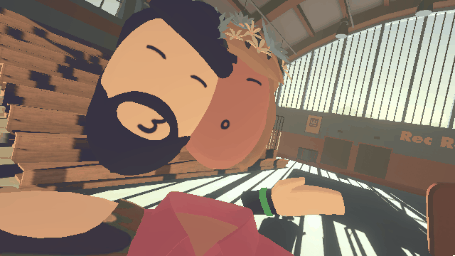 For as long as I can recall, I have had access to the internet. From the time I was a young teenager, I had reached out to friends through chat, created profiles on multiple social media sites, and enjoyed expressing who I was to the world. These social media sites were rudimentary at the time, providing image upload limits, having low traffic, unattractive aesthetics, and unsophisticated platforms for spreading information. However, they sufficed at the time and I created friendships with people from all across the world.
For as long as I can recall, I have had access to the internet. From the time I was a young teenager, I had reached out to friends through chat, created profiles on multiple social media sites, and enjoyed expressing who I was to the world. These social media sites were rudimentary at the time, providing image upload limits, having low traffic, unattractive aesthetics, and unsophisticated platforms for spreading information. However, they sufficed at the time and I created friendships with people from all across the world.
I remember playing a MUD while I was a teen, or a Multi-User Dungeon, one of the first online gaming platforms of the internet. You would be asked to type what your character would do; go n, go w, k goblin, get all… these were the inputs that would help your character navigate north, navigate west, kill a goblin, and get all of the corpse’s inventory for possible weapon upgrades or magical items. I was drawn to these online worlds and soon came to meet other users who would play with me, sharing their experience points as we adventured. The people I had encountered often became my Facebook friends, though seldom became conversational.
Later, I remember posting on an online art exhibit platform. There I shared my traditional and digital drawings with the world and pretty soon I started receiving comments. One particular user and I happened to get along and we not only became Facebook friends, but actually called each other on occasion as well!
Fast forward a decade, I now spend time in virtual reality (VR), where online gaming flourishes. While playing virtual billiards, I quickly found an opponent with the built in match-making. By the end of it, we spent nearly two hours talking and shooting billiards, and the experience was unlike anything I had encountered before. Although the MUD allowed we to interact with others, it was purely text based so the presence of another was unconvincing; and my friend on the art exhibit site and I shared dialogue over the phone, it was short lived and our lives naturally drifted apart as the exhibit became less popular. In contrast to this, VR allowed me to see this person’s height compared to my eye level. I saw that he would move his hands while talking to me, and fold them while he listened. I could see his head tilting upward while thinking over what was just discussed, and teleporting around each other made it feel like we were truly in a room together. This created a certain bond unlike anything I had ever experienced before by simply using a computer. I felt like I was with a whole person, even if he was thousands of miles away. I knew immediately that I had made a friend.
The friendship has moved to other platforms and we share experiences together regularly. We have played billiards together, played disc golf, enjoyed some air hockey, hung out in a tennis ball arena and shot selfies with our avatars, and we have even turned into robots and killed drones with our boomerang katanas. I have learned about his personal life beyond the screen, his history, and I have shared my own story with him. The bond between him and I could not have existed without VR, and this fact has profound implications for our evolving social dynamics. I shared various experiences with this new friend of mine. We worked together to battle evil forces, and were able to discuss our experience as we maneuvered and strategized within these simulations. What other experiences could people share together? How does this change the way we perceive and think about others? What other sides of a person could be observed through exploring, as Gene Wilder once said “a world of pure imagination”.
VR is more than fun. VR enhances empathy and understanding. We now have the ability to bond with a mind without the distractions of judgement by using the VR interface to mask irrelevant information, and instead select what our consciousness wishes to share with others.
*The views expressed by our authors are personal opinions and do not necessarily reflect the views of the CCPA